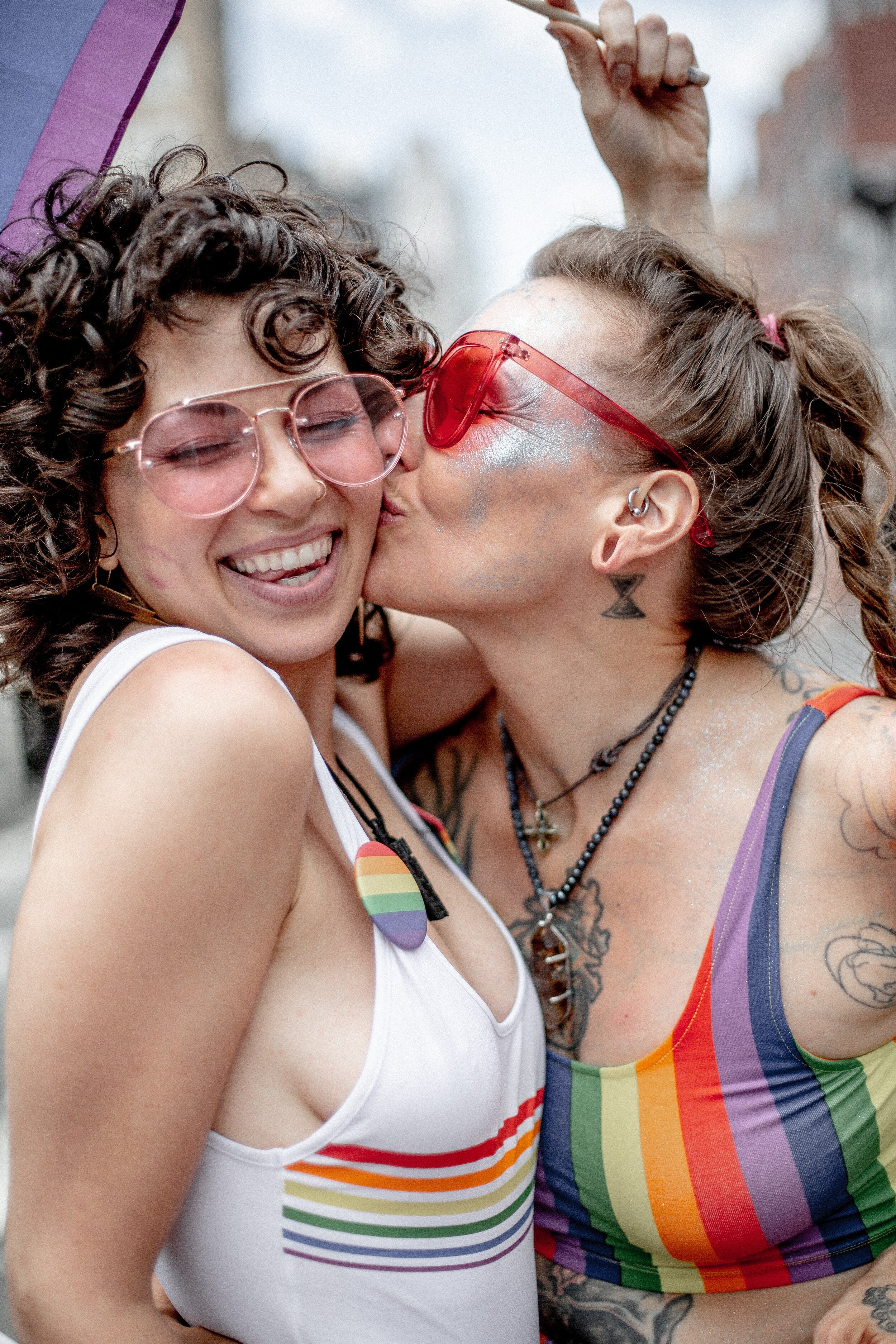Reclaiming 'queer'
For decades, the word ‘queer’ has been weaponised and used against the LGBTq+ community. Now, we’re proudly taking our power - and language - back
exclusive | 5 min read | supporting new writers
In the summer of 1990, it wasn’t just the heat and humidity that hung in the New York air. The streets were full of the sound of hundreds of people chanting: ‘We’re here! We’re queer! Get used to it!’
They were powerful words, used to deliver a vital message of uprising.
Queer Nation, an organisation that campaigns for LGBTQ+ equality and rights, was making a loud, brave stand against the community’s haters - aggressors who’d weaponised the word queer against the very people it had come to represent. Violence against the LGBTQ+ community had also reached a frightening peak.
That city protest sparked a change - albeit one that would take many more years - shifting the use of the word queer from a slur, to an accepted and positive description of identity.
history
For many years before that protest, the word queer had carried a variety of meanings. Some of them good, but mostly bad.
Odd. Strange. Unusually different. To spoil or to ruin. These are all official dictionary definitions of queer that paint the word in a negative light and over the past century, the meanings implied by those who have used the word to abuse, put down, and victimise the LGBTQ+ community.
Use of the slur gained momentum in the early 20th century, deployed as a derogatory way of describing gay or feminine men, lesbian or masculine women, as well as the trans+ community.
The earliest recorded use was in a letter by John Douglas, the 9th Marquess of Queensberry, in 1894 when Douglas successfully launched a smear campaign against queer icon Oscar Wilde, after discovering the actor was in a relationship with his son.
Like petrol on a flame, use of the word ignited, quickly sweeping the globe into a universally used slur. Queer was deliberately used to cause offence, not just in everyday life, but also by journalists in the media.
Coupled with the historic definitions of odd and strange, this newly bolstered insult encouraged the public to see the LGBTQ+ community as ‘abnormal.’
Changing times
But ever since the protests of the 90s, a growing number of younger LGBTQ+ members, including myself, have reclaimed the term for themselves. Now, people may choose to identify as queer; the definition being a person whose sexual orientation or gender identity falls outside the heterosexual mainstream, or the gender binary.
Inside this community of acceptance and support, the alternative and positive use of the word has started to blossom. Though, one might ask why would anyone in the LGBTQ+ community want to reclaim a word used for so long to inflict pain on their brothers and sisters?
I acknowledge that for many of the LGBT+ community, the word may forever bring back negative experiences and emotions. It may never be a term they use, or feel is worthy of reclaim. Sometimes, the damage and hatred cannot just be shrugged off and forgotten.
But many believe the positive use of the word carries benefits, including providing a gender-neutral wide-reaching term, that allows the LGBT+ community to expand and include all those not mentioned in the original acronym. These include intersex, asexual, and pansexual. It has also been adapted and absorbed into other identities, including genderqueer, similar in meaning to gender fluid or non-binary.
In this capacity, queer becomes an umbrella term of safety and acceptance, a nod to the community to which the person belongs. The Mainstream media and entertainment industry have started using the term positively, with Netflix’s Queer Eye being a good example.
It is important to note that although the term is being reclaimed by many in the LGBTQ+ community, many more still understandably refuse to use the term and see it as offensive. Ultimately, using the word queer as an identity is a personal choice. It is acceptable for our supportive straight cisgender (Someone whose gender identity is the same as the sex they were assigned at birth) allies to use it in a positive light, but it must be used as an adjective, not a noun.
As a queer woman myself, I strongly believe reclaiming a word that was used as a negative and using it in a positive light is empowering and the ultimate middle finger to those who used it to offend and encourage hatred.
And to those still using queer as a slur, let the chants of our 90s sisters and brothers ring in your ears: ‘We’re here. We’re queer! Get used to it!’
Do you have a story to share? Please get in touch - we’d love to hear your Lacuna Voice.
Like this article? Please help us commission more like it by donating the cost of a cuppa on Ko-fi. Sharing this article on your social media, and following us on Instagram, Facebook, and Twitter are also a great way to support our independent, self-funded platform.
We encourage debate, but trolls are not welcome. Please read our comments policy before contributing.







